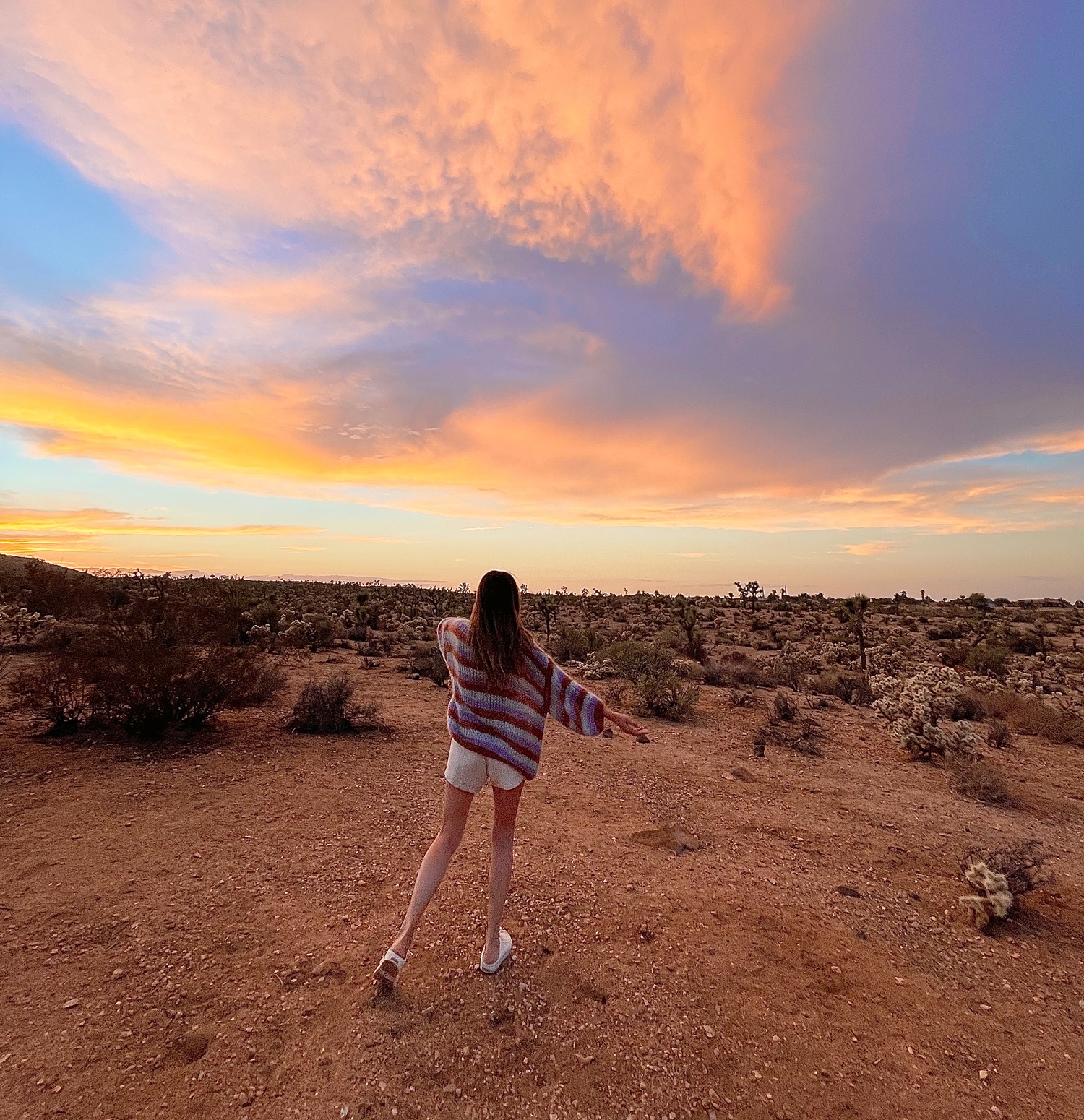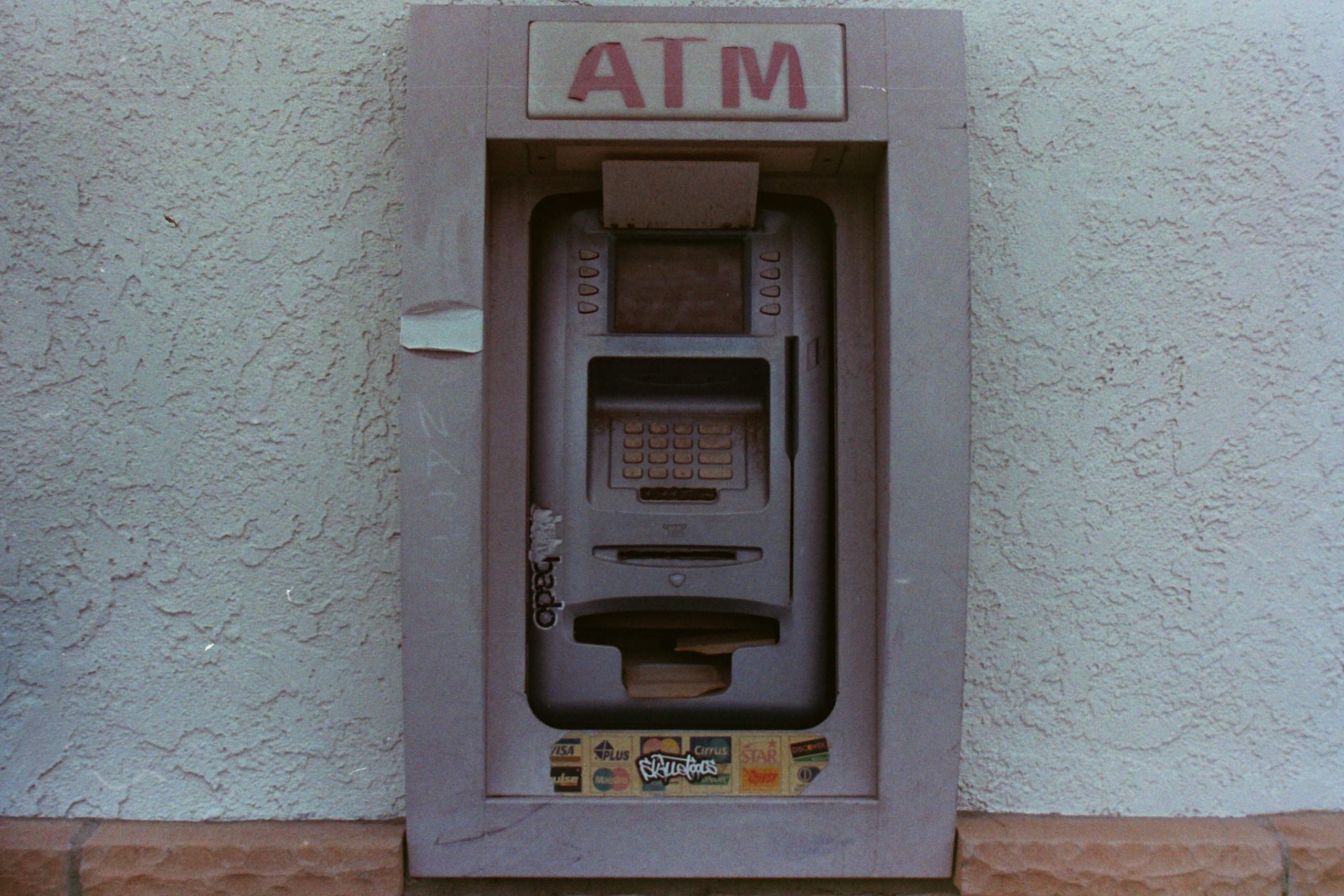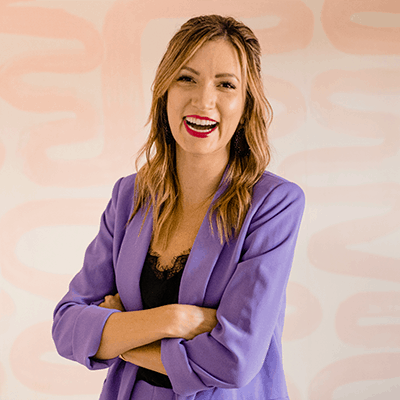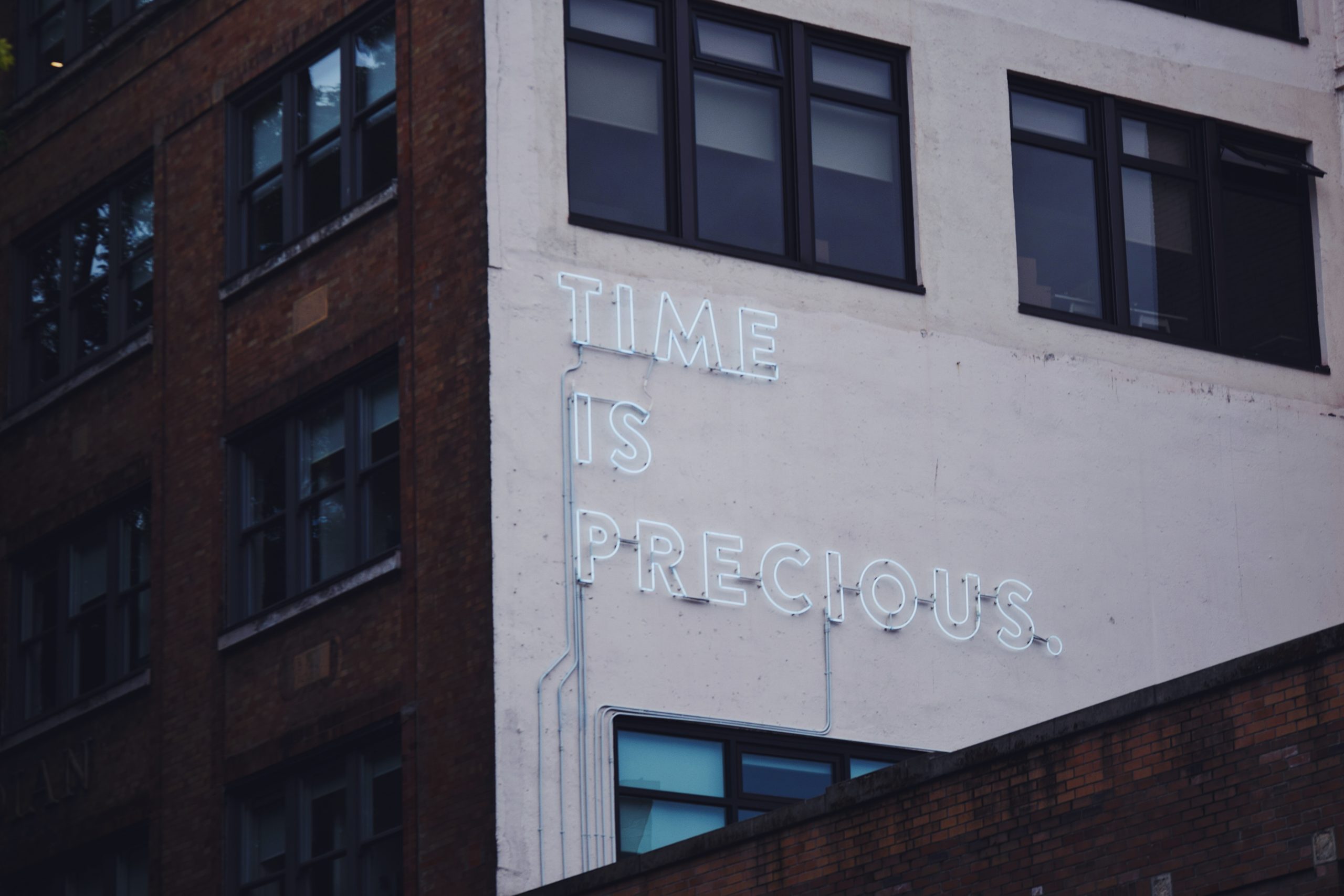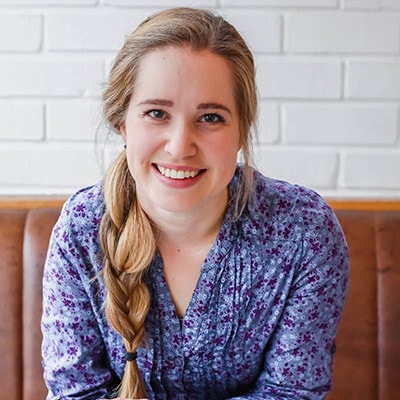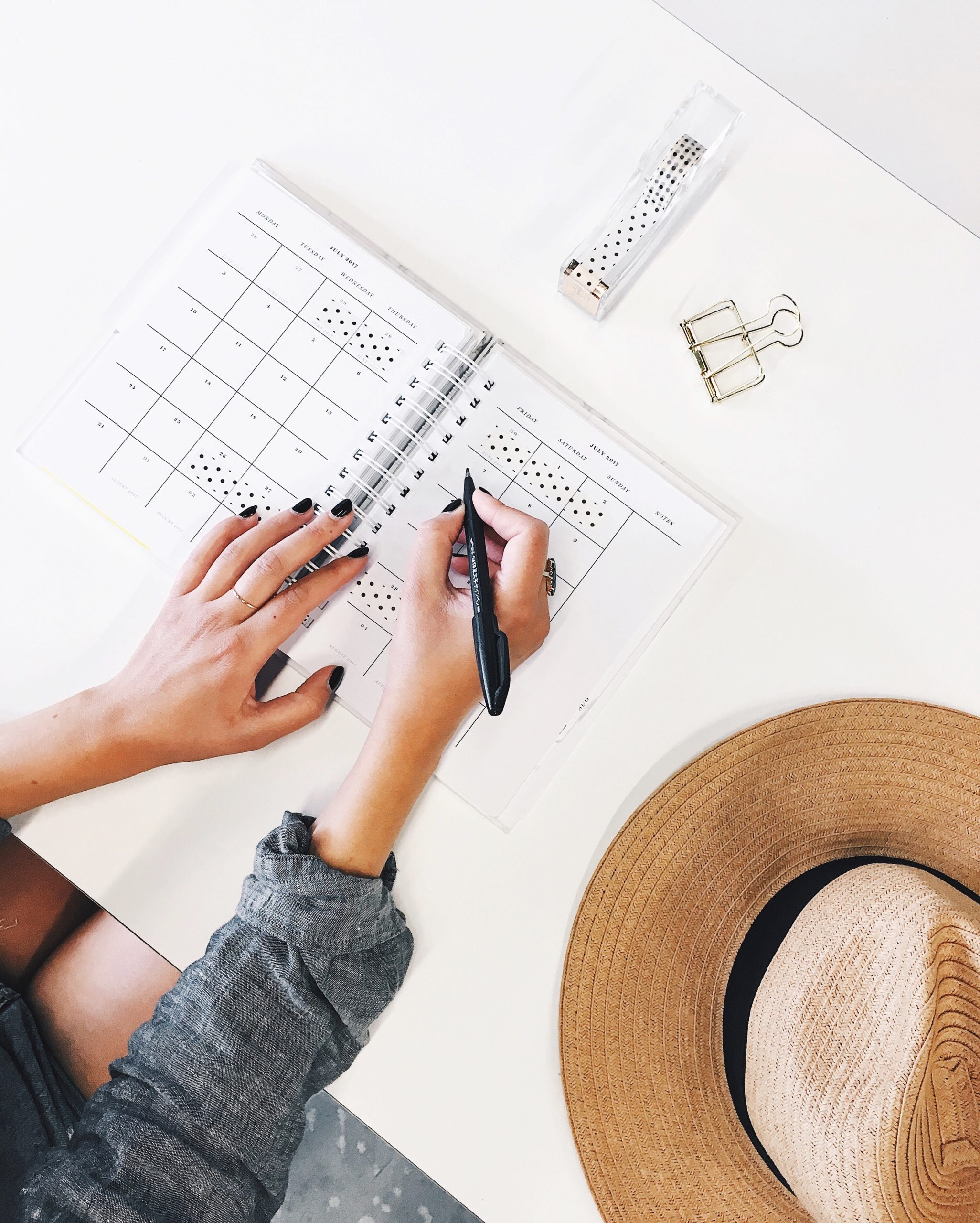Tune In to the Episode: Apple Podcasts | Spotify | Stitcher
What if I told you that you could tap into a cycle of infinite energy that would fuel your creative passions, desires, and success? You could use this energy to make the most of your time, get the most out of your business — all while doing less. And that all you need to do this is already within you. Would you keep reading?
Maybe it wouldn’t immediately seem true. Maybe it’s a little hard to believe.
It does seem like, as a culture, we’re taught that the only thing worth celebrating is visible and linear progress. Sometimes it just feels like if you’re not hustling, you’re not really making progress. If you’re not pushing out that next banging new course, heading directly into another launch, drafting your next viral social media post, well…. are you actually doing enough?
Allow me to disrupt that status quo thinking for a moment.
There’s a cycle, a blueprint for creation of anything that is based in the practice of doing less to receive more. More in abundance. More in sustainability. Our full annual year follows it, the lunar cycle follows it, a month in a woman’s life follows it.
And today’s episode tells you all about it.
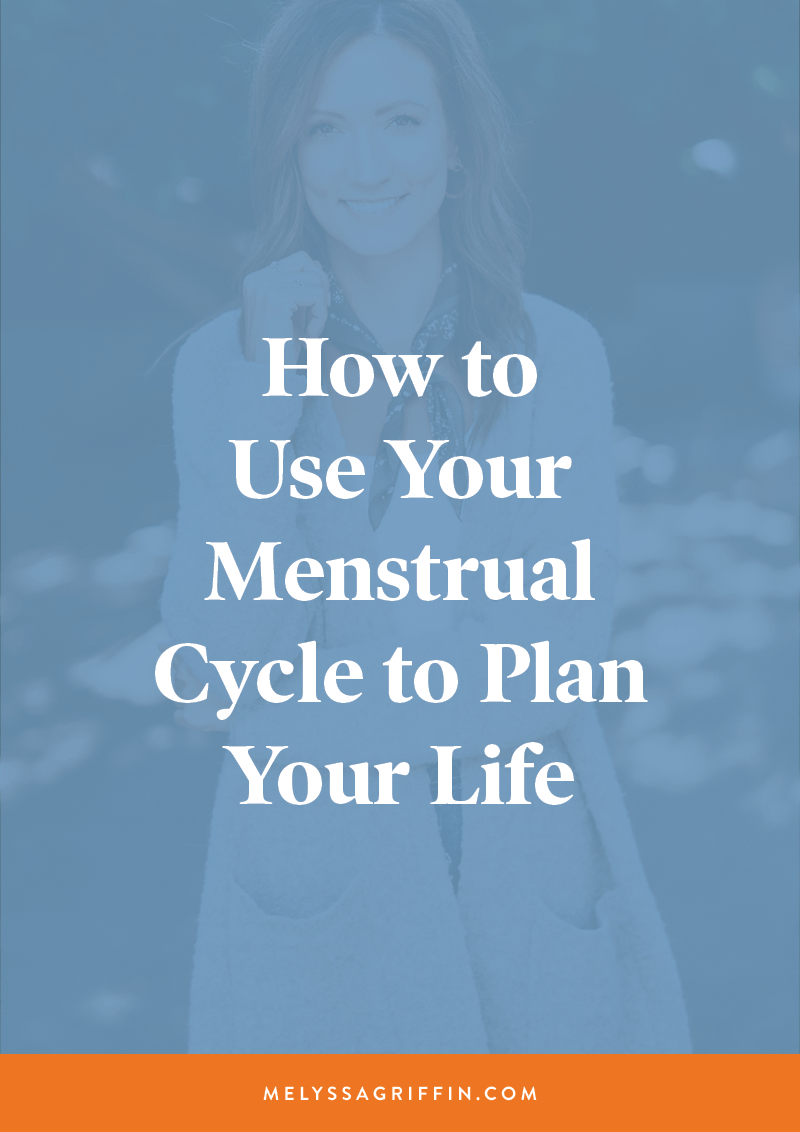
I got to sit down and interview Kate Northrup – an entrepreneur, bestselling author, and mother who helps women get what they want in business and in life while feeling less stress and avoiding burnout.
She’s studied how nature works and she applies that to your business and life so you can tap into more abundance and sustainability — and break through the conditioning we’ve received on how hard work is the only way to get what we want.
As someone who has been through burnout, has learned to listen to her body, and honor rest, I can tell you that this conversation with Kate is incredibly impactful for all creators who want more ease and flow in their business and life.
You’re going to be blown away by what Kate unpacks here.
Let’s dive in!
Listen to the episode below:
This episode discusses topics like…
- How creativity doesn’t have to be urgent
- How to uncover when you’re letting an idea marinate, or you’re distracting yourself in order to avoid taking action
- Kate’s personal story with “busyness” and the big realization she had around doing less
- The amazing benefits of taking more rest for yourself and as a company
- Why we don’t live in alignment with how our bodies and nature are created — and how to change that
- How to use your cycle to make powerful decisions and tap into abundance
After dozens of episodes and tons of inspiring conversations, the Limitless Life™ podcast is full of incredible examples of impactful people choosing to leave the status quo behind and step into their most limitless self. As a “thank you” for being part of this community, I’ve put together 10 of the BEST lessons guests have shared in a handy dandy guide. Click the image below to download yours for free.
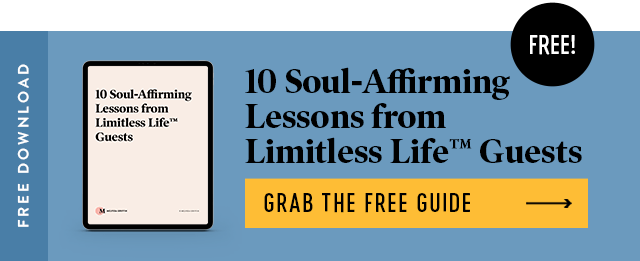
Links from the episode:
- Register for the free, at-home Limitless Entrepreneur retreat here!
- Follow me (Melyssa Griffin) on Instagram for honest conversations about business, mindset, and my life.
- Follow the Limitless Life™ Podcast on Instagram for new episode releases and wisdom on how to live a life with no limits.
- Learn about the Bold Abundance Mastermind.
- Kate’s Website
- Grab Kate’s free Do Less Weekly Planning Ritual Guide
- Follow Kate on Instagram
- Check out Kate’s latest book: Do Less: A Revolutionary Approach to Time and Energy Management for Ambitious Women
- Kate’s Book: Money, A Love Story
- Dr. Cleopatra Kamperveen | Fertility Specialist
- Nicole Jardim’s Fix Your Period
- Dr. Valerie Rein’s Patriarchy Stress Disorder
How to subscribe + review:
Want to be the first to know when new episodes are released?
Also, podcast reviews are pretty darn important to the iTunes algorithm and the more reviews we receive, the more likely we’ll be able to get this podcast and message in front of more people. I’d be extremely grateful if you left a review right here letting me know your favorite part of this episode.
Share on social?
Did this episode help you expand what’s possible for your life or business? Do you think your social media followers may learn something, too? I’d be forever grateful if you shared it on social media. 🙂 If you do, tag @melyssa_griffin and @limitlesslifepodcast so I can repost you! Woohoo!
I’d love to hear your thoughts on this episode. Have you tapped into cycle syncing? What patterns in energy and creativity have you now noticed in your own cycle?
Thank you SO much for being here, sweet friend. I’m honored to walk this journey with you. See you in the next episode!
xoxo
Melyssa
Melyssa
Excited to chat with you.
Kate Northrup
Yeah.
Melyssa
Learn more about you, and just dig into this concept of doing less, and so many other things you talk about around doing less and productivity and our cycles and our natural, like, connection with nature and how, yeah, how we can hear that in ourselves. So, I would love to know, first of all, like, what’s your story with busy-ness? Productivity? Were you like the busy hustle guru in the past?
Kate Northrup
Busy hustle guru. I would say yes, I would say left to my own devices. I do a lot of things. I’m a seven on the enneagram, which is the enthusiast and like, unless… you’re same?
Melyssa
Yeah.
Kate Northrup
Yeah, unless I rein it in. I just like, I’m very excited by life. And so I’m very excited by possibilities, and everything feels like a great idea. So yeah, left to my default, I do too many things. And so this work, I really, really, really teach what I need to learn. And I would say for sure, like, if you ask somebody who knew me 15 years ago, they would be like, Oh, yeah, like Kate was always up to a million things. But I wouldn’t say I was super aligned with like, the push grind. Like you have to force it. Like that kind of thing has never, I’ve always been pretty into, okay, how can we streamline? How can we make it more fun? How can we make it more easeful? And that kind of thing?
Melyssa
Right. Right. I feel exactly the same way. In terms of like, I used to think maybe I’m doing this because I feel like I should like I should be hustling more and grinding. But I felt the very same thing of like, I just like doing a lot of things. And so that was almost the conditioning I had to release was, can I love doing a lot of things, but just not all at the same time? And how do I decide? What are the things that I really want to put my energy into? Because Yeah, like you, I could just get excited about something and then want to do it right now.
Kate Northrup
Yes, it feels really urgent. But the thing is, creativity does not have to be urgent, and some ideas are better left marinating. And what I found is that the fewer things I do at the same time, the more impactful they become. The more my work expands in its depth. The more impact it has on my clients. The better results they get. And the more satisfied and fulfilled I am like. It took me a long time to be somebody who was like, “Oh, I’m living my purpose, I am doing my calling.” And that switch absolutely came from slowing down and doing less because I realized the degree to which doing all the things was a distraction, to keep me from my most important work.
Melyssa
Mhmm, ooh, the D word: distraction. Yeah. And I love that you said creativity, something about creativity isn’t urgent, or doesn’t come from this place of urgency. I’ve been feeling into this word a lot lately: spaciousness. And like how much creativity comes from just having space.
Kate Northrup
Yeah.
Melyssa
Like, you just you can’t have it unless you actually have some time to just feel and allow instead of force ideas to come to you.
Kate Northrup
Well, yeah. And also, when we think about, you know, I look always to nature for models for creativity, because nature is sort of the ultimate creative source. And so when we think about pregnancy, you know, it’s really optimal if a baby stays in there, until a woman goes into labor. It’s really optimal for a baby to stay in there until full term. Now, obviously, sometimes things happen. And sometimes it doesn’t go that way. And I trust that too. But I mean, I’ll never forget leaving the pediatrician with my first daughter when I was really pregnant with my second daughter. And I was like, so ready for Ruby to come out. I was just, I was huge. And I think I was at 41 weeks. So it was past, you know, it was past due. And my pediatrician just called down the hall and she was like, “Remember, the longer she stays in there, the better.” I just was like “F you!” But, she was right. And so I think about that a lot with my creative ideas, you know, with the books that I’ve written and the programs and, you know, just even lessons for my membership community, and it’s like, marinating is a good idea. It’s better for it to come out complete, as opposed to piecemeal. Now, that’s not to say if you’re listening, please do not use this as an excuse to be a perfectionist. That’s a very different thing.
Melyssa
Mhmm. Ooh. Right. How do we differentiate between like, Am I marinating in it because I’m allowing my creativity to flow? Or am I just stalling and procrastinating or perfectionist-ing?
Kate Northrup
I think you’ll know based on your own tendency, so I’m somebody who has a tendency to put things out half baked. And so for me, I know I need to lean towards marination I know plenty of other people who have a tendency to never put anything out because they’re perfectionists. And so you’ll… you just you already know you’re listening. You know which one you are.
Melyssa
Yeah, yeah, yeah, yeah, you’re right. Okay, so I know you wrote a book called Do Less. And you have this beautiful philosophy around like, why do we force ourselves to do so much? How can we actually do less? How can we make it easier to have the results we want, the life that we want? So where did this philosophy come from? Like, why do you think this is such an important message for people?
Kate Northrup
So this came from lived experiences. It does… everything I teach, which is that basically, I got pregnant with my first daughter, and was so tired, I could barely do anything, I had never experienced a feeling of not being physically capable before in my life, I’ve always been an athlete, I was always like, I pick up sports really fast. I you know, like all those things, dancer. And so I just felt taken out in a very odd way. And to this day, even having had, you know, a toddler, and a newborn and an extraordinarily sick husband and running a company, I was still not as tired doing that as I was during this first pregnancy. And I started to unravel my relationship and my identity as capable. And I started to think about how wild it was that I was doing the most productive thing of my life, which was creating a human body. And yet…
Melyssa
It was just like, Hello, like, do we have enough credit for the fact that women make babies? Yeah.
Kate Northrup
It’s wild. So I was doing the most creative, productive, important, I think, thing of my life to that day. Now I’ve done it twice, but, and yet, I didn’t look like I was doing anything. And I wasn’t thinking about it. Like I didn’t have to make a plan. It wasn’t coming from my intellect. And I think having grown up in a family that is hyper education focused and really being on that achievement, vibe of the New England, you know, whole thing we do up here and other places, too. I had always, I guess, thought that my best work had to come from my brain. But I was living this experience where my most important work was had sort of nothing to do with my brain. My body was doing it without me having to do a thing about it. And so it just changed my whole relationship to creativity and work and it just… then, then the whole birth thing was really a lot. And then that didn’t go as expected. No, that was just like it was one lesson after another in surrender and letting go and like, Oh, you think it’s this way? Yeah, it’s not. So let me just rip away everything that you thought so you can start over. And where I started over was after that first year of motherhood, it was extraordinarily intense. We had a sick baby, she was like scratching herself aggressively due to extreme eczema. She would wake up bloody in the morning, her crib looked like a horror scene. I mean, it was awful. And I had mastitis and postpartum anxiety and postpartum insomnia. And like, it just it sucked. Like it really was not what I thought motherhood was going to be at all. And yet, and yet, so and we only had 10 hours of childcare a week. And that was like a whole other thing, which we could talk about later, because I just thought that I should be able to do it all myself. So I just didn’t. I knew I needed help. But like, I thought that wasn’t okay, so I just didn’t say so.
Melyssa
Right.
Kate Northrup
But we sat with our accountant a year after Penelope was born. And we realized that we had made the same amount of money that year as the previous year. And so I thought, well, if I could make the same amount of money working significantly less than half the amount and like having zero bandwidth for my business, and I could do that in a somewhat emergency situation. Could I perhaps do that on purpose when I’m not losing my mind? And, and like, having my identity completely dismantled? And could I find some elements that other people could use as well? And so that’s where “Do Less” philosophy came from. It was born from, you know, it was born from the struggle, and then it came, it really has become this just fascinating thing where I’m just like basically studying how nature works, and seeing how We can apply that to our lives and our businesses to become more abundant and more sustainable.
Melyssa
Mm hmm. Oh, I love that example. Just so many lessons in surrender, releasing control, not actually doing anything. Yeah, I grew up with a very similar type of family dynamic of like the logical, heady achievement, education, academic kind of scene. And it was a lot of unlearning, for me of “Who am I, if I’m not tapping into this logical side of myself?” And “Who am I if I’m not striving for the results, and I’m allowing it and having fun creating it?” Yeah, that’s really interesting. So did you, after having that experience, start looking around the rest of your life and business and, and also maybe just society in general? and being like, “Whoa, what the heck is going on here?”
Kate Northrup
Yeah. Well, I mean, yes, and I’ve continued to do so ever since. I mean, I was just so fascinated by how things work. And, you know, my newest thing is just learning about the nervous system, and neuroscience, and I’m still fascinated by how our bodies work, and why we do the things we do. But the thing that happened, which was unexpected is that when I got my period back after my daughter was 13 months old, I was just suddenly so fascinated by that. Which is odd. Because I, you know, I was like 33. So I’d had a period, this was not new. But I had a break of two and a half years, because I got really skinny before my wedding, and I lost my period. And then I got it one time, and I got pregnant. And so there was a very long period of time, due to the not having a period and then the being pregnant, and then the nursing that I just didn’t have a period. So when it came back, it was this really cool moment of return to myself. And and it was the signal that my body was no longer the source. Like my body was no longer it’s sort of exclusively being used to house and grow another human or feed another human that, that there was enough extra of me to come back to myself. And so I started learning about the four phases of the menstrual cycle, I started tracking my menstrual cycle, and it became this amazing source of reliability at a time. And this is so related to right now in 2020. at that particular time in my life, I felt wildly out of control. And I was really grasping, because new motherhood just was so hard for me. And so here we are in 2020. And I’m finding that a lot of us are also feeling really out of control and really grasping. And yet there are these predictable things happening all the time that we can use as a source of solace and safety and actually productivity guardrails and kind of this beautiful biological framework or cosmic framework. Because the menstrual cycle has four phases. The lunar cycle has four phases. Planet Earth has these four seasons, right? That’s not by mistake, right? That’s divine design. And so there are these these four specific ingredients that go into the creation of a human body that go into full annual year that go into a lunar cycle that go into a month in a woman’s life, that give us a blueprint for the creation of anything in a really sustainable way. And so that’s what I became particularly fascinated by. And I thought, if this model for creativity and for productivity is good enough for Mother Earth, and keeping life on the planet alive, at least to the best of her ability with us here, then perhaps it would be good enough for my business. And perhaps it would be good enough for all the businesses and maybe we could run our businesses in alignment with lifeforce as opposed to in opposition of the flow of life.
Melyssa
Right, right. And so like, I agree with everything that you just said, and why isn’t this common knowledge? If it’s like, it mirrors the seasons, and it mirrors the lunar cycles? Like why do you think our society is almost I can’t imagine somebody even listening to you saying that and being like, that sounds a little out there.
Kate Northrup
Right now, it is out there because we’ve been brainwashed to think that the only thing that’s valuable is visible progress, and linear progress, and visible growth, because we live in a patriarchy. So we’re hyper masculine identified, there’s nothing wrong with the masculine we all need the masculine but we are hyper identified with one way of being However, when we begin to look at the way the menstrual cycle works, the lunar cycle and the seasons, what we find is that there is a full half of all of these cycles, that is a more inward, more Yin, more feminine. Except that as a culture we only celebrate the outward so we only celebrate spring, summer energy. We only celebrate follicular ovulation energy. We only celebrate, you know, waxing moon, full moon. We want to see it to believe it. We want proof. We want you know, it only matters if you have certain number of thousand followers or whatever, right, and there’s so much right now, you know talking about the invisible labor of caregiving, the invisible labor that falls on women’s shoulders at home and how COVID has made that so much more apparent. And so I just think that that really highlights the fact that we don’t honor the invisible and what is seen as more quote unquote, women’s work, even though that’s changing has been made invisible, because it hasn’t been celebrated. And, you know, we could get into why that is, and I think it’s because of the power of what’s possible when we access different parts of ourselves, and that the status quo would prefer to not be disrupted, because the patriarchy is working really well for some people. So like, why would we want people to think that, you know, female bodies are good, or that feminine energy is good, like, we should just shut that shit down so that no one changes anything.
Melyssa
Right, right. Shut that shit down. Yeah, I like that you said linear too, because I feel like that comes up so often when we’re talking about progress and working and hustling. And it’s like, this point A needs to lead to point B, otherwise, it’s a failure. And it’s like, what if point A leads to point negative Z, and then point negative Z leads you to point X that is some amazing thing that is brought to your life? What if it’s not linear? What if nothing is actually linear?
Kate Northrup
I don’t think it is.
Melyssa
Yeah. And then even we’re talking about like, time, and I suppose physics and just thinking about like… Yeah, what if nothing is linear?
Kate Northrup
The whole like space time continuum. I mean, I don’t I’m like sound like I’m in the movie Back to the Future. But. But there is a degree like when you start to look at quantum physics, which I am not, by any means an expert in quantum physics, but I’ve watched a few documentaries, yeah, you begin to realize that our understanding of time is like not actually all there is to be known. There is, you know, the theory of relativity proved that time really is relative. Like it just is. And so it’s completely impacted by our perception. And we have the ability to speed it up and slow it down at our will.
Melyssa
Mm hmm. Yes, yes. It’s, it’s interesting, like how many truths we believe that are very firm in what they are. And yet, so many of the truths are actually so flexible and malleable. And like you said, not linear. So, yeah, go do some research. anyone listening on quantum physics, if you’re struggling to grasp this idea of time, too. What do you think about… so we’re talking about our cycles and the seasons of our cycles, and kind of trusting and allowing these different forms of who we are in each of these different weeks. What do you think about something like hormonal birth control that changes our hormones and our cycles?
Kate Northrup
This is a great question. So first of all, I just really want to honor that the pill, you know, hormonal birth control, has been one of the greatest breakthroughs for women’s liberation of all time.
And so I’m not a pill basher.
Melyssa
Why do you think that? I’m curious.
Kate Northrup
I think that because, what we know, is that a woman having control over her reproductive health, and her ability to prevent pregnancy is one of the most important keys to unlocking her ability to be free.
Melyssa
Yes.
Kate Northrup
So yeah, because anybody who has children knows that they are not a great path to freedom. They’re extraordinarily distracting. And if you don’t have control over whether or not you are getting pregnant and having babies, like you do not have control over your life, and you cannot possibly change your situation and become economically, independent, change communities, heal communities, all those things. So, first of all, I just want to say the pill has been amazing, and certainly in other countries where women are not nearly as free as they are here in the United States, it is still like so, so, so, so important, and there are so many situations where it’s a great idea. However, that being said, if you are in a country where you have amazing freedoms to be able to do what you want with your body and you have relative safety (physically) and relative boundaries (reproductively), I would really recommend finding a different way to prevent pregnancy because being on hormonal birth control completely interrupts your cyclical energy. So the magic of your menstrual cycle and the fact that you’re the most intuitive during your period, and then you’re the most energized during your follicular phase, and you have this magical superpower for initiating and planning and getting things started. And then your unbelievable magnetism during ovulation and the fact that you will attract more opportunities and be more verbally fluent, and have these incredible pheromones that like makes anything possible and be sort of in this peak fertility place – literally and metaphorically – and then the magic of your brain chemistry that makes you hyper-focused during your luteal phase, and really in that get-shit-done mode for the 10 to 14 days before your period. That’s not happening if you’re on the pill. So you don’t actually ovulate when you’re on the pill. And you don’t actually have a period. So the whole thing is being run by a pharmaceutical company. And there’s so many drawbacks. If you are a woman who already has reproductive freedom, and if you are a woman who already has a lot of rights, I would really consider something else.
Melyssa
Mm hmm. I appreciate that distinction, because I’ve just personally been kind of like, “No birth control pill.” But you’re so right that, in places where people don’t have those freedoms or safety, that it actually is completely transformative. Yeah.
Kate Northrup
It’s all relative.
Melyssa
Maybe that should be the title of this episode. But, I had my own experience with birth control and burnout, too, which I think are both right up your alley, in terms of what you teach and talk about, but I was taking hormonal birth control for a few years, and eventually got to this point of physical burnout and got all the blood tests and all the things and my doctor said, My naturopath said that, it looks like the birth control is what’s really messing everything up. Because your hormones are all out of whack. You have this one hormone, it’s like a speed, something I forget. But it’s one hormone that’s just like clogged basically, like it’s hundreds higher than it should be. And it’s why you’re feeling horrible. And so I went off the pill and took a few months to like, recalibrate myself part of it was also like, I wanted to reconnect to that intuitive side of myself the seasons and just like, allow this part of myself to be fluid instead of it being like, calculated. And yeah, it’s been a wonderful experience since then, I’ve just reconnected to this natural part of who I am. So yeah.
Kate Northrup
Good for you.
Melyssa
Thanks. Yeah, it does feel good.
Hey, Limitless Listener. We’ll get back to the show in just a moment, but I wanted to take 20 seconds to invite you to the free at home digital retreat that I created just for you. It’s called Limitless Entrepreneur and it’s all about helping you to create an abundant, fearless mindset, all while growing your online business. If you want to join, just visit limitlessentrepreneurretreat.com to register. It’s totally free. That’s limitlessentrepreneurretreat.com. All right, friend, back to the show.
Okay, so thank you for sharing that wisdom on hormonal birth control. Can you tell us a little bit more to about our cycles, because I know I mean, now that I’m off birth control, I’ve been doing my own research on it. And fascinating about… it’s fascinating, like, first of all, it’s fascinating that hormones, which for some reason, I didn’t know until a couple years ago, they’re like your whole personality, like they really matter a whole lot in how you feel and how you show up. And so they shift and fluctuate throughout our cycle, if you’re female. So what does that look like? What are the cycles? And how can they inform how we plan our lives?
Kate Northrup
Yeah, so there are four phases. As we’ve said, they mimic energetically the phases of the season, so they’re easy to remember. So, winter time is the menstrual phase. And that’s when you’re bleeding. And you know, it lasts anywhere from three to seven days is normal. That is the time when your left and right hemispheres are the most interconnected that they will be at any other time of the month. So you will get the most clear downloads intuitively during that time. It’s a great time to make decisions. Because you have access to all this wisdom that’s not actually as available the rest of the month. So, if I’m working with a client and she doesn’t know what to decide about something, I will ask her, “What day of your cycle are you on? Is it possible that you could wait to make that decision until Day One when you start to bleed?” And if she can, it’s amazing. It’s like she’ll send me a message – “Oh my god, it was so clear in three minutes. Like, I’m so glad I just tabled the decision and didn’t spend, you know, hours deliberating about it because I just knew instantly.” So that’s the superpower of your menstrual phase.
Melyssa
What’s wild to me about that is that I feel like the conditioning we’re given about our menstrual phase is you’re erratic and emotional and…
Kate Northrup
Yes! So this is the brainwashing because when you begin to understand the power of our bodies — and by the way, male and female and gender non-conforming bodies and you know, cis, trans, all bodies are powerful. So let’s just start there, you do not have to be a cisgender woman in order for this to apply to you. And this will apply for all people with periods who are having a period that is unmedicated and relatively regular. Interestingly enough, I’ve been reading about trans women who are on HRT, and they actually will often have predictable hormonal symptoms in a 28-ish day cycle. So while they don’t have a period, per se, there’s like a whole interesting thing that happens. So hopefully, more people will study this because it’s really interesting.
The other thing about your period is, it’s a great time for rest and inward energy. So if you can take a day off, awesome, if you can take 20 minutes off, awesome, whatever you have available to you, because the more rest you get, the louder your intuition gets. And, of course, folks do not want us to access this because when women know and are in touch with their power, when we all are, when we’re in touch with our deepest intuition, it’s very obvious what’s okay and what’s not okay. And so then we have to change the whole way the world works. Obviously.
So, then the next phase is the follicular phase, which is the six days-ish after you finish your period. And this is like springtime energy. So this is the time when you’re going to feel excited. It’s like a puppy wagging its tail. You’re going to feel excited about starting new things. If you’re somebody who has trouble starting new things, like you are that perfectionist who has trouble getting things out there, really capitalize on your follicular phase, because you’ll have the extra get-up-and-go to just be like, “F it. I’m putting it out. I’m just gonna do this thing.” Right? It’s a great time to try a new workout class, it’s a great time to try a new restaurant, like you’re just you’re you’re kind of like in this springtime, like ah, just coming out of, you know, coming out of my cozies. And I’m just like frolicking in the fields. So that’s, that’s follicular, it’s a great time for planning and initiation.
Then you have ovulation. Ovulation is the same energetically as summertime. And this is a time of peak fertility, energetically and metaphorically. So I find when I’m oscillating, it’s a really good time to do media pitches or reaching out to people to collaborate, or I’m just in this like, sort of like social, you know, I feel like the belle of the ball. I care far less about “no’s”, it’s just your testosterone is the highest as a woman and your sex drive tends to be the highest at this time as well. And you will literally be more fertile, but you can use that, you know, for your business.
Melyssa
Yeah, yeah. A few years ago, I was like, I was just having the best day. Like, I just felt so energized and so happy and so like wanting to connect with people, and just I don’t know, just felt like a totally different way of being. And I looked at my app that tracks my cycle. And it’s like you’re ovulating today.
Kate Northrup
There you go.
Melyssa
Makes sense!
Kate Northrup
There you go. Now I just want to say apps are wonderful and I use several myself. And if you really like if you’re really trying to get pregnant or really trying to prevent pregnancy, just want to be clear, like it’s a good idea to get to know your cervical fluid, it’s a good idea to do some other tracking things to just really learn because then you know, of course, an app won’t actually know when you’re ovulating, but it can estimate it. And it’s great for people like Melyssa and I who are just, you know, generally wanting to know, but I mean, of course, I don’t know, your… you know, parental status, but I am done having the babies.
Melyssa
What do you recommend? Are there like companies or things that you recommend if somebody does want to track that?
Kate Northrup
Yes, I really recommend Dr. Cleopatra Kamperveen. So she has The Fertility and Pregnancy Institute, and she’s amazing. She has a 98% success rate with her Fertility Primemester Protocol. And she’s a freaking rock star, and she has the most detailed tracking system I have ever heard. And it’s all data driven. She has invested over $7 million in her research and protocol. So Dr. Cleopatra is where it’s at if you want to get pregnant. She can also teach you how to prevent pregnancy because once you know how to get pregnant, you can know how to not get pregnant, but like I think for most people, they find it easier to not get pregnant than to get pregnant. Well, I don’t know if that’s true or not, but anyway.
So that’s ovulation. In your business, it’s a great time to batch podcasts to be, you know, do a bunch of videos, to really be connecting with people, go to events, teach a workshop, you know all those things.
And then you have your luteal phase. And I think the luteal phase is the most misunderstood. Possibly menstrual and luteal, but I’ll tell you about luteal. It’s the 10 to 14 days before your period starts. And it is the time when your brain is the most focused. So it’s when between ovulation and luteal you begin to turn back inside like back, your energy comes back within. And so the follicular and ovulation are outward energy, and the luteal and menstrual are inward energy. Just like the fall and winter are inward, cozy, and the spring and summer are outward. And so the luteal phase is a great time to be detail-oriented. you’ll be the most focused, the most detail-oriented. I am not naturally detail-oriented, and I struggle with finishing things. And so I really go hard on my luteal, and I make sure that I have mapped it out in my calendar and I have a Luteal List, which was inspired by one of my clients, Darcy, it’s actually in the Do Less Planner system, is a Luteal List. So you can keep a list throughout the month of all the like ticky tacky, detailed stuff you need to do and then you just knock it out during your luteal phase, it’s a great time to close the door, put on the classical music, have a caffeinated beverage, and just really plow through your to do list. However, you will have a stronger negativity bias during this time. Now, the pathologized version of this is PMS. And I just want to say that PMS has been normalized and it is not normal. It’s also not healthy. So if you’re experiencing PMS symptoms, and you are feeling like your symptoms have made your life unmanageable, there are wonderful options that are not hormonal birth control. And I would really recommend checking out Nicole Jardim’s work. She wrote a great book called Fix Your Period. So check out Nicole.
Melyssa
That’s really good to know, by the way, that PMS is not a normal thing.
Kate Northrup
It’s not. Now, what is normal is feeling a little more cranky. Okay, so like, there’s a spectrum here, okay. But I always like, a few days before my period, I will often get in a little thing with my husband, where it’s like, I will like snap at him about something. And I just know that that’s okay. Like if that happens once or twice a month, it’s really not the end of the world. But I’m not like raging and screaming and like not able to do my life, right, and I’m not having crazy symptoms. So your negativity bias is stronger during this time. And it This is very useful, it’s part of your superpower. So it is stronger, because it’s the time when what’s not working in our lives and what’s not working in our businesses is more obvious. And then we can just jot that down and take that into our bleeding phase, back into the menstrual phase to start making some decisions and asking our internal wisdom what we might want to do about that in this next cycle.
And then in our follicular phase, we would initiate what came through during menstrual and then during ovulation, we would put that thing out into the world and get it really going and then during luteal, we would bring it to a close again, and then get the information about what might need our attention during the next cycle. So it really becomes this beautiful way to be in a dance with yourself and just keep optimizing your life.
Melyssa
Mm hmm. Right. And so I know as an entrepreneur, do you use your cycles to plan like, if you’re doing a launch? Or you’re gonna be, I don’t know, recording a podcast or something like that, like, do you use it to plan your life in that way?
Kate Northrup
I do to some degree and I will tell you what this is one of my little things is that like my cycle, gosh, darn it is not quite as predictable as I would like. So I would like for it to be like that I know exactly the day it’s going to come. And right now I’m in about a three to four day window. So it makes it impossible to plan a launch around. And I think it’s sort of my bodies joke with me of like trying to continue to heal my control freakiness. However, here’s what I do do.
On a micro level, I plan my weeks according to what phase my cycle is in. So, if things have shifted and somehow I ended up having a week where I’m on 10 podcasts, and it’s the first two days of my period, I will tend to either reschedule or make sure that I don’t have tons of other things going on. I’ll just make more space. And then what I do is I use this model as more of a metaphor or a framework for our entire company projects. So I look at and I call this the Upward Cycle of Success. So I look at what projects do we have on our plate and what phase in this framework is each of the projects? And so that follicular springtime energy in a project, I call it “emergence.” That ovulation, Full Moon, summer energy, I call it “visibility.” The luteal, like wrapping things up autumn phase, I call it “combination.” And then the menstrual winter, New Moon energy I call the “fertile void.” So, what we do is we plan our launches and promotions around more of a macro framework to makes sure that, as a company, we are not rushing. And we are taking the adequate time to finish strong and analyze and implement what changes need to be made. And then take a proper rest so that we don’t burn out and so that our work doesn’t start to suck. Because if you keep producing too many things, eventually your work starts to suck.
Melyssa
Hmm, yeah, yeah. And your connection to your work starts to suck, too.
Kate Northrup
Yeah. And then it’s like, why am I even doing this? I hate it, you know? And obviously, and then you get sick.
Melyssa
Right? Right, right. What does that look like for you and your company, the rest period?
Kate Northrup
So usually, it looks like just kind of a couple times a year, we just like take a full break for a week or two. Usually around the holidays. It’s like two weeks, we don’t put out a new podcast, we do have to answer, you know, some customer service emails, but it’s like we’re not doing anything else. But most of the time, it just looks like business as usual. So, like our regular monthly deliverables for our membership, and our regular weekly deliverables for our free content, but not ramping up for anything additional. So it’s kind of just keeping it chill.
Melyssa
Mm hmm. Okay, yeah, I feel like some people will be listening and being like, rest? Like, how do I incorporate that? You know?
Kate Northrup
I really love to talk about rest as a growth strategy. And you may just have to trick your brain into believing that this is true. That really like when you take a good rest, you know, we know this, if you work out, you know, if you’ve been an athlete, you know, you have to have a recovery day,. Your muscles get stronger when you give yourself time to recover. As an entrepreneur, your ideas will get better, you’ll get more creative, you know, you’ll have that competitive edge, even though I’m not like a huge competition person, but you will, if you give yourself time off.
Melyssa
Yes, I completely agree. It’s almost like when you’re going for a walk or taking a shower or something and you start to get all these downloads, and it’s like, you don’t have your phone, you don’t have any inputs, you just have you. Suddenly, even in just 20 minutes that you may be showering or something, right. But that might be kind of a long shower, but that you start to have all of these downloads and realizations. And it’s like, what if you could intentionally do that every single day, every week? What if that was just part of your life? What would unfold? What would become possible?
Kate Northrup
Yeah, exactly. And that really becomes this rhythmic organization of your time where you are building in space for that every single month around either your menstrual cycle or the lunar cycle. And then building in in between promotions, time for that in your promotional calendar, in your company calendar. And it really makes everything so much better. You know, yeah, that’s not a great, like, specific, but I gotta tell you, it’s just like, wow, the opportunities that have started to come my way after years of feeling like I couldn’t quite get it off the ground, have been amazing. You know, just, you know, podcast saying yes. And people reaching out who I never would have dreamed, would ever be interested. And I can really chart it back to slowing down and taking rest, and having my work deepened.
Melyssa
Yes, I love that. And I’m so with you on that. And so actually, earlier today, in our Mastermind Slack channel, we have this channel for our members where they can share something that they are really enjoying, and somebody shared your book this morning.
Kate Northrup
That’s so cool.
Melyssa
Yeah, she was like, I’m loving this book about doing less. And I told her that I was going to be interviewing you in a couple hours. And so she had a great question that I think is kind of what we’re talking about of like, okay, so she gets it, she’s like, logically, I get it. Doing less, resting. Makes sense. And I can see how that would be valuable. But I also have a ton of conditioning around “It needs to be hard, I need to hustle. And if I don’t, then I don’t deserve it.” How do we make that leap between understanding it logically and living it in an embodied way?
Kate Northrup
Mm hmm. I love this question. So practice. Just like meditation, just like working out, just like your yoga practice, just like you know, drinking your green smoothies or whatever thing you’re doing. It just takes as long as it takes. And PS I don’t think we’re ever there. You know, I have this whole idea with cyclical living that it’s actually an upward spiral. So we will absolutely you will revisit the same lessons over and over and over and it’s like God, I thought I dealt with this, but I don’t think we… I just don’t think that we’re done, we just are revisiting it at a higher level of consciousness. So last week, for example, I completely went against my own advice, and I totally burn the candle at both ends. And the week ended with me sitting at a restaurant having a massive fight with my husband, it was terrible. Like, I am the worst student right now. And so I think we have to have a lot of grace and compassion for ourselves to just say, “Okay, everybody else is running left. And I am trying to run right. And it’s gonna just require fortitude and daily practice to do the thing that no one else is doing.” And that’s why I love creating community, and gathering women who are running businesses this way. Because we need to remind each other all the time, like, “Hey, babe, what day of your cycle are you on? Do you think you could wait to make that decision?” Or “Hi, you just shared that launch plan? But I think it’s massively way too complicated. And maybe could you take it down a notch and still get just as good, if not better results.” So I think we have to be one another’s kind of Do Less bodyguards, even somebody, we do this for each other on our team, you know, I just texted a team member. And I was like, “Hey, this that I was thinking about doing this and the other thing,” and she was like, “First of all, that’s the day that you’re with your family. And second of all, like this boundary, that boundary and this boundary,” and I was just like, “Right.”
Melyssa
I love having people like that!
Kate Northrup
Community. Yes.
Melyssa
Yes. And do you tell the people on your team like, Can you remind me when I’m falling out of alignment with this?
Kate Northrup
Yeah. Oh, my gosh, they all know that left to my own devices. I will say yes, to far too many things. And I mean, we literally when we hired our new integrator, I was like, basically, your job is to tell me no.
Melyssa
Yeah. I’ve had very similar conversations with my integrator, too. I have a tendency to take on a lot of things because I just like we were saying, get excited. And even when I’m excited, doesn’t mean it’s a good reason to do a million things at the same time. No, yeah. So she knows part of her job description. Say no. I want to go back actually, earlier, you were saying that you’ve taken this philosophy of doing less, and you’ve been learning about how neuroscience and your nervous system applies to, to everything that we’ve been talking about. I would love to hear more about that.
Kate Northrup
Yeah. So when we are in… Okay, so, first of all, I want to preface this by saying, I am not a trauma expert. I am not a nervous system expert. I just read books and like listen to podcasts. So I’ll just start with that. And I really recommend the book Patriarchy Stress Disorder by Dr. Valerie Rein. She has a wonderful book that will really help you to understand this as specifically as it applies to women and she is extraordinarily intersectional in her approach. And I just love her. Okay, so basically, we have these “Big T” traumas that happen to us “Little T” traumas, and then “Collective Traumas” and then also “Ancestral Traumas.” So these are, you know, moments that overwhelm the nervous system, and we are not able to actually move through them, so we get stuck in that place. And so some people actually have full on like PTSD as a result, especially of “Big T” traumas, whether it be you know, rape, or, you know, assaults, terrible things that happened to people. However, there’s “Little T” traumas. And these are things like, you know, divorce or getting made fun of at school, or which could, PSP a big t trauma just depends. And then the collective trauma of watching another woman be unsafe, like, for example, when Dr. Blasi Ford was on the stand, and our entire country wasn’t listening to her, for example, like that’s a collective trauma that we actually feel in our bodies as, “Oh, I am not safe here in this country,” or when we see that the leaders of our government or the heads of companies are almost all men, it’s sending the message, “I am not as valuable.” That’s not conscious. But that’s what our body feels because we’re not represented. And then finally, the ancestral trauma, which through the study of epigenetics, we know is very real, which is basically that like things that happened to our grandparents and grandparents, grandparents and grandparents, we were, like live in ourselves still. And so we will feel fear and we will have no idea why. And we may never know why. Because it’s actually handed down to us. And that’s a beautiful evolutionary strategy. It’s just not fully necessary right now.
And so what happens is when we are having a trauma response, we go into our reptilian brain and our reptilian brain is survival brain Our choices are fight, flight, or freeze. And so fight, flight, or freeze is a stress response. And that’s our nervous system, really having this intense response where all of kind of the blood goes to just our essential organs, and our brain activity gets focused more on our brainstem, which is just this one, one tiny area that’s just devoted to keeping us alive, but like really little else. And so our blinders Go on, we literally get myopia, and we cannot see straight.
Now many of us are living that way, mostly all the time, because we are on our phones, we’re listening to CNN 24 hours a day, we’re in particularly a time of fear right now, for obvious reasons. So then the personal growth industry is like, “Oh, well, you have a mindset problem.” And I just have to say, there are certain things that we cannot unravel any other way than through our body. And the belief that like, if you could just work harder on your mindset, you would just change these patterns. That’s not how we’re wired. Stuff lives in our body, until we learn to heal it through our nervous system, through learning how to signal safety, and then that, of course, impacts your brain and when our bodies feel safe, that’s when we digest our food really beautifully. That’s when you know all that beautiful connection between the gut and the brain and the serotonin and the happy chemicals can happen. That’s when our reproduction comes back on board. I mean, a huge connection to fertility is feeling stressed out, because like, why would your body think it’s a great idea to get pregnant, when you’re extraordinarily stressed out, your body’s gonna be like, not a good time for a baby, because the baby’s also stressful. This woman does not have the bandwidth. So it’s just fascinating when we think about, you know, how often we’re putting ourselves in stress thinking that that’s going to be the solution to our problem that like, Okay, I have a money problem, or I have a customer problem, or I have a whatever marriage problem, okay, what I need to do is do more things.
Melyssa
Mm hmm.
Kate Northrup
And actually, that prevents us from being in that full capacity to make really great decisions, and be fully present to what is true for us. Right? So people pleasing can be a trauma response, for example, you know, all of the way we do, you know, turning ourselves into a pretzel for our customers for our, you know, for our parents, for the whoever what’s the people on the internet, you know, so it’s just really good to know how to get in your body, how to be like, okay, you’re safe. We’re okay now and be able to run your business and your life from that place, as opposed to from a place of fight flight or freeze.
Melyssa
Yes, completely agree. I think that goes overlooked sometimes, too, because it feels like if I just go to see a therapist, and we get into this, like logical place again, instead of feeling the physical manifestations of trauma and pain, and like you’re saying just years of things that maybe we don’t even know where they come from, but it’s living inside of us.
Kate Northrup
And there are a lot of things that talking cannot heal.
Melyssa
Yep. Yeah. If somebody right now is thinking like, okay, I want to get into my body, I want to heal this stuff. Where do I start?
Kate Northrup
Okay, well, I would really read the book I just said Patriarchy Stress Disorder. And while obviously that is an intellectual exercise, there’s this this recognition that happens in the body, like I felt a deep unraveling, just because she was articulating something that my body already knew, but that my mind had never known before. I really would recommend, you know, the practice of yoga is such a beautiful practice for Nervous System healing, EFT, the Emotional Freedom Technique is beautiful. You know, certainly finding yourself a somatic therapist, a trauma informed counselor can be beautiful. If you do have a history of big t traumas, I would recommend working with a professional because there are, you know, random blogs on the internet are not going to be a great place to like there is actually some danger in doing it without care. There’s danger of re-traumatizing yourself. So if you feel like you might fall into that category, I would actually seek a professional, some professional support.
Melyssa
Yeah, that’s good advice. And I like the just integration of using your body and your mind as a way to heal this whole collective aspect of you that it’s not just one or the other. So I love that. I just have one more thing I want to ask you. I like to ask this to all of my guests because the podcast is called Limitless Life™. And I feel like the way that you talk about doing less and productivity in our bodies and honoring just the rhythms of who we are is so in alignment with living limitlessly and having just the utmost freedom and reverence for ourselves. So, I would love to know if you could give us one piece of advice on how to live a life with no limits. What would you say?
Kate Northrup
I would say, tap into your cyclical energy. Begin to organize your life and your business around that. Just start listening to how you feel, and begin to use the fuel source of your true energetic supply to run your business and your life because that is a sustainable fuel source when you are in alignment with your energetic ebbs and flows and honoring how you actually feel as opposed to trying to feel a different way. It is like the ultimate sustainable fuel source to get wherever you want to go versus burning the energy of proving and pushing.
Melyssa
Hmm. Yes, alignment. Who knew? Who knew. Kind of the answer to everything
Kate Northrup
Yeah, it kind of is.
Melyssa
Thank you so much, Kate. Where can people go to learn more about you buy your books, all the things?
Kate Northrup
Yeah, absolutely. So if you want to take what we talked about today and really practice it in your life, I have a weekly planning ritual like a weekly Do Less planning ritual that you can download over at katenorthrup.com/list. And then of course, you can buy my books anywhere books are sold, and if you want to connect, I hang out on Instagram the most out of any social channel. So that’s @katenorthrup.
Melyssa
you’ve got a great Instagram. I love the things that you post. Yeah. Thanks. very aligning. Thank you so much. Appreciate you.
Kate Northrup
This is so fun.
Transcribed by https://otter.ai

